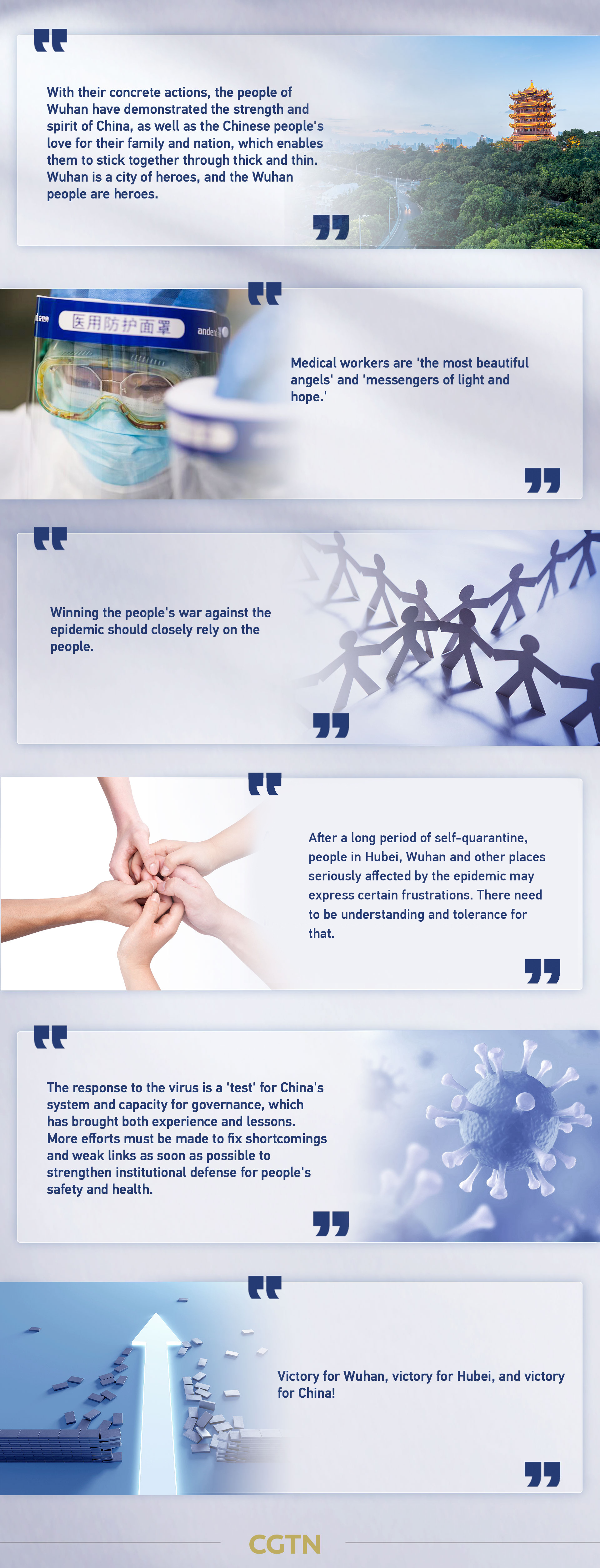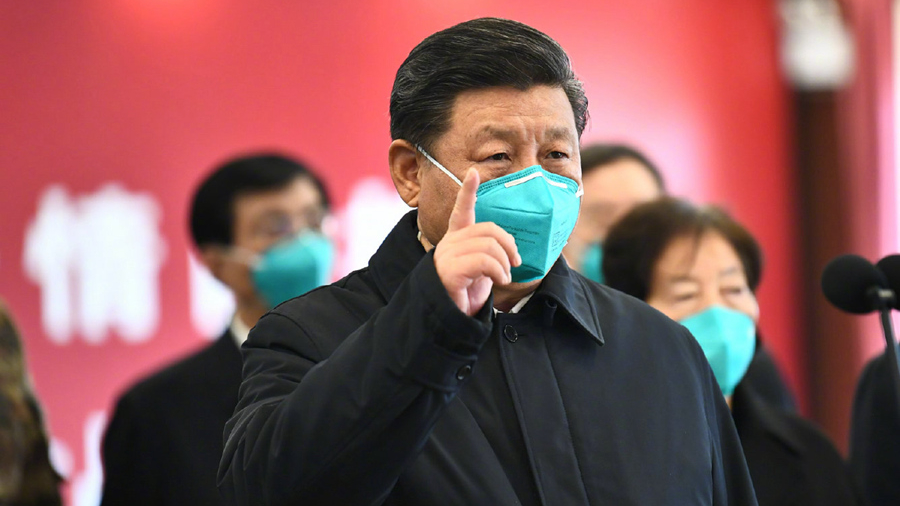Declaring a "people's war" to fight the coronavirus by mobilizing the force of the whole country, Chinese President Xi Jinping flew into Wuhan on Tuesday to inspect the epidemic prevention and control work on the ground.
Cities were locked down, businesses suspended, public events canceled and even the annual sessions of the national legislative and political advisory bodies postponed for the first time due to the epidemic.
After an arduous struggle, positive signs have emerged. Daily new cases on the Chinese mainland dropped to 19 on Monday, down from the plateau of thousands a month ago. Most provinces have reported no increase for days.
President Xi called the epicenter of the outbreak, Wuhan, a heroic city and its residents heroic people, adding they will be remembered in history for the final victory against the disease and the whole Party and nation are deeply moved by Wuhan people.

The Leadership
Epidemic response was on the agenda in a series of Party leadership meetings Xi chaired since early January, including seven meetings of the Standing Committee of the Political Bureau of the Communist Party of China (CPC) Central Committee. Xi also took the lead to make a donation to the cause.
Read more:
Xi Jinping's key quotes on achieving poverty alleviation while fighting COVID-19
Xi Jinping's action plan for defeating COVID-19, achieving development goals
Recently, Xi convened two teleconferences attended by officials from across the country, and made two epidemic-related inspections in Beijing. He has also made numerous instructions guiding the fight against the outbreak.
On Tuesday, Xi encouraged medical workers at the front line through a video link at Huoshenshan Hospital in Wuhan.
"What you should do now is stay confident. We all should be confident that we will win this war," Xi said.
00:34

Governance model
Under Xi's command, a central leading group on the epidemic response headed by Premier Li Keqiang was established on January 25. Two days later, Vice Premier Sun Chunlan was sent to oversee the work on the ground in Hubei and has been stationed there ever since. In February, Party chiefs of Hubei and Wuhan were replaced in light of the serious problems exposed in the initial response.
Read more:
Xi Jinping vows victory against COVID-19 in Wuhan
China's governance model in response to the coronavirus outbreak
But in essence, what Xi commands is a people's war against the epidemic. Xi ordered the use of the entire country's resources to pool strength into tackling the issue, which is an advantage of China's socialist system.
About 42,600 medics were dispatched to Hubei from across the country. Academicians, leading experts on respiratory illnesses and infectious diseases, and one-tenth of the country's intensive care specialists were all called in to the epicenter, according to the National Health Commission.
During his inspection to Wuhan, Xi said all prevention and control measures have been taken by the CPC Central Committee with the primary focus on preventing more people from being infected and saving more patients' lives.
China's efforts
Viruses respect no borders in the global village. Within weeks, the coronavirus has spread to all continents except Antarctica.
Since the outbreak, China has actively cooperated and exchanged information with the WHO and other countries, quickly sharing with them the full genome sequences of the new virus.
To help the global fight against the virus, China made a donation to the WHO, provided masks and protective gowns to the Republic of Korea, sent testing kits to Pakistan, Japan, Iran and the African Union, and dispatched experts to Iran.
Xi said China adheres to the concept of building a community with a shared future for humanity as it actively contributes to safeguarding global public health while going all out to protect its people's life and health.
(With input from Xinhua)
(Photos by CGTN's Gao Hongmei, Li Yueyun)